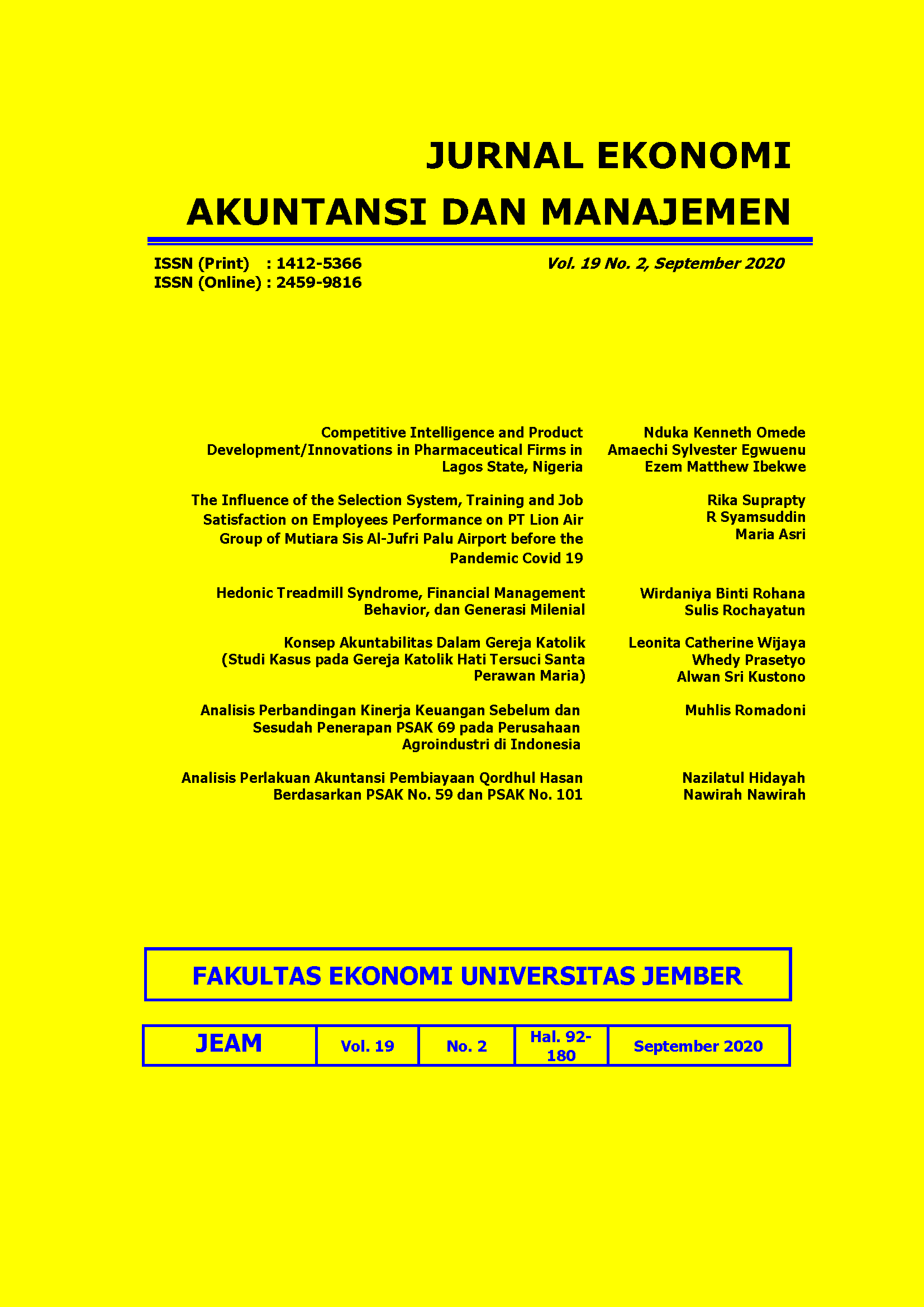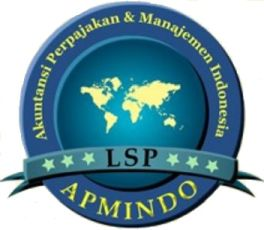Competitive Intelligence and Product Development/Innovations in Pharmaceutical Firms in Lagos State, Nigeria
Abstract
This study examined competitive intelligence and product development and innovation in pharmaceutical firms in Lagos State, Nigeria. Three hypotheses were formulated to determine whether or not a relationship exist between competitive intelligence and product development and innovation in pharmaceutical firms in Lagos State, Nigeria. The study adopted a survey research design to obtain data, using a structured questionnaire which was analyzed using Pearson’s product moment coefficient of correlation. The result indicated that there exists a significant relationship between competitive intelligence and product development and innovation in pharmaceutical firms in Lagos State, Nigeria. Based on the finding it was concluded that the process of product development and innovation cannot be successful except there is information about customer’s needs, wants and expectations of which the innovation products or services intends to serve. The study recommended among others that pharmaceutical firms should leverage on information gathering and sharing to determine the nature of the new product and service so that the new product offerings will be more valued and satisfying than the existing ones that are offered by the competitors.
Keywords: Competitive Intelligence, Information gathering and sharing, Product Development and innovations, New products, New product offerings, Pharmaceutical firms.
References
Ain, N. U. 2013. Role of competitive intelligence in multinational companies. International Journal of Emerging Sciences 3 (2):171.
Anica-Popa, I., and G. Cucui. 2009. A framework for enhancing competitive intelligence capabilities using decision support system based on web mining techniques. International Journal of Computers Communications & Control 4 (4):326-334.
Blenkhorn, D. L., and C. S. Fleisher. 2005. Competitive intelligence and global business: Greenwood Publishing Group.
Charity, A. E., and I. U. Joseph. 2013. Manage competitive intelligence for strategic advantage. European Journal of Business and Management 5 (3):1-9.
Colakoglu, T. 2011. The Problematic Of Competitive Intelligence: How To Evaluate& Develop Competitive Intelligence? Procedia-Social and Behavioral Sciences 24:1615-1623.
Haag, S., and M. Cummings. 2009. Management information systems for the information age: McGraw-Hill, Inc.
Haataja, J.-E. 2011. Social media as a source of competitive intelligence in a pharmaceutical corporation.
Ishikawa, A., and J. Nakagawa. 2013. An Introduction to Knowledge Information Strategy: From Business Intelligence to Knowledge Sciences: World Scientific Publishing Company.
Kahaner, L. 1997. Competitive intelligence: how to gather analyze and use information to move your business to the top: Simon and Schuster.
Karim, A. J. 2011. The value of competitive business intelligence system (CBIS) to stimulate competitiveness in global market. International Journal of Business and Social Science 2 (19).
LI, W.-s., M. SHI, and X.-k. XIAO. 2011. Research on industrial competitive intelligence and technology life cycle based on the patent analysis——taking the thin film solar cells industry as example [J]. Technological Development of Enterprise 11.
McGonagle, J. J., and C. M. Vella. 2002. A case for competitive intelligence. Information Management 36 (4):35.
Moneme, C. P., and H. N. P. Nzewi. COMPETITIVE INTELLIGENCE AND PRODUCT DEVELOPMENT IN SELECTED PHARMACEUTICAL FIRMS IN ANAMBRA STATE OF NIGERIA.
Nte, N. D., K. N. Omede, B. K. Enokie, and O. Bienose. Competitive Intelligence and Competitive Advantage in Pharmaceutical Firms in Developing Economies: A Review of Lagos State, Nigeria.
Nwokah, N. G., and F. Ondukwu. 2009. Competitive intelligence and marketing effectiveness in corporate organizations in Nigeria. African Journal of Marketing Management 1 (1):010-022.
Pellissier, R., and T. E. Nenzhelele. 2013. Towards a universal definition of competitive intelligence. South African Journal of Information Management 15 (2):1-7.
Priporas, C. V., L. Gatsoris, and V. Zacharis. 2005. Competitive intelligence activity: evidence from Greece. Marketing Intelligence & Planning.
Rabaey, M., J.-M. Leclercq Jr, E. Vandijck, G. Hoffman, and M. Timmerman. 2006. Intelligence base: Strategic instrument of an organisation: VRIJE UNIV BRUSSELS (BELGIUM).
SCIP, U. 2013. Society of Competitive Intelligence Professionals: USA.
Teo, T. S., and W. Y. Choo. 2001. Assessing the impact of using the Internet for competitive intelligence. Information & management 39 (1):67-83.
Wheelen, T. L. 2010. Strategic Management and Business Policy: Mymanagementlab Student Access Code Card: Prentice Hall.





